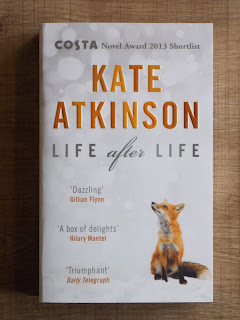Hi
This is my
last review of the month.
I got De Elfen secondhand and in Dutch. As far as I know they have not been translated into English.
This first novel in the German series Die Elfen has 670 pages.
I got De Elfen secondhand and in Dutch. As far as I know they have not been translated into English.
This first novel in the German series Die Elfen has 670 pages.
I started
this novel around the 7th of this month and he struggled to get it
finished by the end of this month to be able to include it in my Wrap Up.
This
definitely wasn’t my cup of tea.
It’s so very
old fashioned. There’s nothing new in here even though it is a rather young and
new series.
The plot is predictable, the whole thing is rather dull and the characters are not thought out at all.
Noroëlle especially is very superficial and she is the woman with the most lines in the whole novel! I feel ashamed in Hennen’s place for writing such a weak, insipid female character.
The others are shallow and very predictable in their roles as elves or men.
The plot is rather ridiculous, superficial and just quack.
And the whole novel in general feels too simple or weak to be interesting. It’s not even remotely suspenseful but it is so forced.
B O R I N G!
The plot is predictable, the whole thing is rather dull and the characters are not thought out at all.
Noroëlle especially is very superficial and she is the woman with the most lines in the whole novel! I feel ashamed in Hennen’s place for writing such a weak, insipid female character.
The others are shallow and very predictable in their roles as elves or men.
The plot is rather ridiculous, superficial and just quack.
And the whole novel in general feels too simple or weak to be interesting. It’s not even remotely suspenseful but it is so forced.
B O R I N G!
I felt
disconnected and not engaged at all while reading this. Not impressed at all.
Because I
own the other three books in the series (I had to buy them together) I will
attempt to read at least the second one before deciding to get rid of them or
not.
Happy
reading and I’ll see you tomorrow for my monthly Wrap Up.
Helena
Helena
Pumpkin soup while (finally) finishing and reviewing this one before the end of the month.




























